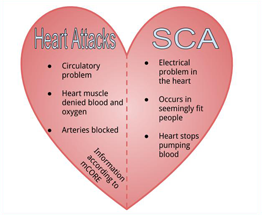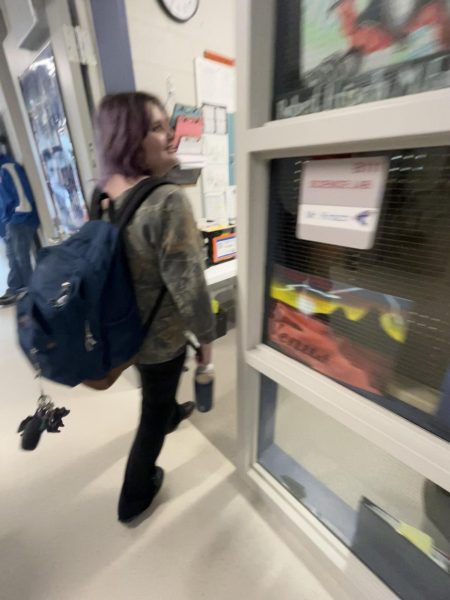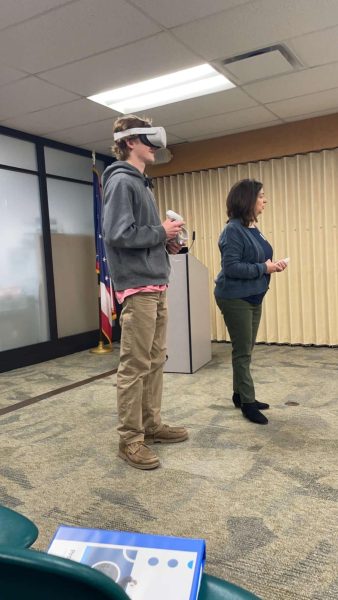Revere students receive opportunity for heart screenings
Revere students received heart screenings at the high school through mCORE, a company dedicated to detecting heart abnormalities and preventing Sudden Cardiac Arrest.
Created by Dr. Kenneth E. Berkovitz, mCORE (Mobile Cardiac Overview and Risk Evaluation) partners with schools to provide students with heart screening in the form of electrocardiograms (ECGs) and echocardiograms. Chad Ogden, the Director of Partnership Development for mCORE, described how partnership with schools raises awareness about Sudden Cardiac Arrest in young athletes.
“I have never been offered a heart screening, and most parents have never been offered a heart screening nor know what Sudden Cardiac Arrest is. [In] every school we partner with, education is a big piece. We want to educate the parents on who we are, what we are doing, why we are doing it,” Ogden said.
Revere High School athletic director Tom McKinnon spoke about how school partnerships with mCORE develop, noting that Revere hosted mCORE heart screening before he became Revere’s athletic director.
“[Heart screenings by] mCORE had been going on before I got here, but in my previous [school] they actually had come to our athletic directors meeting and presented to the whole group. So, mCORE actually reaches out to schools to give a detailed discussion about what they actually do,” McKinnon said.
Students paid 75 dollars to receive a heart screening comprised of an electrocardiogram and an echocardiogram. The same tests cost 2,300 dollars to 2,500 dollars in a clinical setting. Ogden provided the reason mCORE offers services to students at a low cost and described the role of the mCORE foundation.
“What we have done is try to keep the cost as low as we can possibly keep it, so that people will take part. . . . We do not want cost to be the reason an athlete does not take part, so there is the ability to take funds from the mCORE Foundation to cover a screening for a young athlete,” Ogden said.
Ogden explained the reasons student athletes should receive heart screening.
“A lot of people do not realize that Sudden Cardiac Arrest is the number one cause of death in young athletes today in the United States. Rather than waiting for athletes to go down, we have the technology now to come out and proactively screen and look for heart abnormalities,” Ogden said.
Ogden said that mCORE aims to prevent deaths from Sudden Cardiac Arrest by screening as many athletes as possible and noted that, according to the American Heart Association, one in one-hundred athletes has an undiagnosed heart condition.
Lisa Tennenbaum, the Chief Operating Officer (COO) for mCORE, noted the common confusion between heart attacks and Sudden Cardiac Arrest. She clarified the difference between the two.
“[Sudden Cardiac Arrest] is not the same as a heart attack—it is very different, and I think that is what people get confused about . . . . [Sudden Cardiac Arrest] is an electrical system malfunction in one’s heart, “ Tennenbaum said.
Heart screenings have taken place twice this school year. Revere hopes to continue offering heart screening to students through mCORE.






